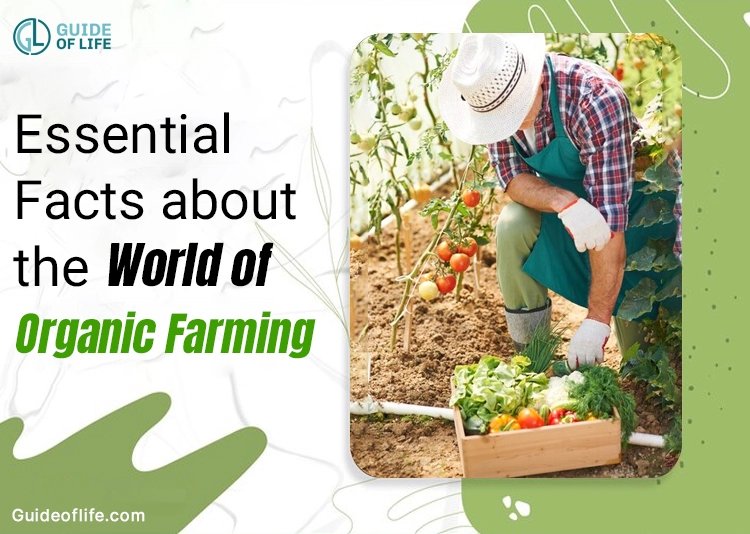Essential Facts about the World of Organic Farming

Organic farming is a special way of growing food that's good for our planet and our health. It's about avoiding artificial stuff like chemicals and genetically modified organisms (GMOs) and using nature's tools to make sure our food is good for us and the environment.
Read More: Exploring the Essence of Organic Natural Farming
The Secret of Healthy Soil
Healthy soil is super important in organic farming. It's like the root of everything. Organic farmers take good care of the soil. They plant different crops each year, add natural things like compost, and let the soil rest. This makes the soil strong, so plants can grow without needing artificial help.
Balancing Pests and Diseases with Nature
In organic farming, they don't use strong chemicals to fight pests and diseases. Instead, they let nature balance things. They bring in good bugs that eat the bad ones, plant strong crops that bugs don't like, and keep things mixed up to confuse pests. It's like a teamwork of nature.
Read More: 9 Plus Reasons Why Organic Farming is Good for Future Generations in India
No Fake Chemicals Allowed
In organic farming, there's a clear rule: no fake chemicals. No artificial pesticides or fertilizers. Farmers use natural and organic ways to protect their crops. This is good for the Earth and us because it means less chemical stuff in our food.
Look for the "Certified Organic" Label
To make sure you're getting real organic food, farms and products follow strict rules and get certified. When you see the "organic" label, you know it's the real deal when you're shopping.
Why Organic Farming is Amazing
Organic farming is great for a few reasons:
- Eco-Friendly: It's kind to our planet because it uses earth-friendly methods.
- Healthier Food: Organic food is often healthier with fewer chemicals.
- Helping with Climate Change: Organic farming stores carbon in the soil, which helps fight climate change.
- Stronger Soil: Over time, it makes the soil stronger, which is better for everyone.
Read More: 10+ Best Organic Fertilizers for Vegetables
Challenges to Know
But, there are some things to consider:
- Slightly Less Food: Organic farms might produce a bit less food per field compared to regular farms.
- Dealing with Pests and Diseases: It's more work to control pests and diseases without chemicals.
- Switching Takes Time: Moving from regular farming to organic farming can take time and effort.
Organic Farming Around the World
- Organic farming is not just a local thing; it's happening all over the world:
- Many countries are trying out organic farming to make food more sustainable and better for everyone.
- The shift to organic farming globally is making our food system better for the environment and for people.
In Conclusion
At Guide of Life, we view organic farming as more than just a passing trend; it's a mindful way of farming that champions our planet and our well-being. By understanding these straightforward facts, you can make informed choices about the food you eat and contribute to a greener, healthier future. When you spot that "organic" label on your food, remember it's a symbol of a promise for a better world, in alignment with Guide of Life's values.

